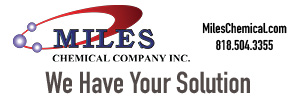Henkel announced its “Respect the Planet, Rethink Design” program, prioritizing four sustainability pillars — climate, circularity, safety, and nature.
 Eric ZhaiThe company says its cutting-edge adhesive, surface treatment, and electronic materials portfolios demonstrate Henkel's enablement of them all.
Eric ZhaiThe company says its cutting-edge adhesive, surface treatment, and electronic materials portfolios demonstrate Henkel's enablement of them all.
“As many in our industry are aware, sustainability is a central value at Henkel; it’s in our DNA,” says Eric Zhai, Henkel Global Market Segment Manager of Heavy Equipment. “Our heavy vehicle and equipment customers are aligned on these practices, too, and we think there are opportunities to collaborate for even more impactful results.”
Zhai says their effort aims to show manufacturers that building tough, long-lasting equipment does not have to sacrifice responsible environmental and human safety protocols.
“These are not mutually exclusive ambitions, and Henkel has proven solutions that help achieve these objectives simultaneously,” he says.
Four Defined Sustainability Pillars
Focusing on four defined sustainability pillars, Henkel’s ‘Respect the Planet, Rethink Design’ program leverages the technology advantages of its product line to facilitate the design, build, and use of vehicles and equipment that prioritize people and the environment while enabling robust, reliable performance.
Examples include:
- Climate: formulas for metal cleaning processes that reduce required bath temperatures, lower chemical consumption, and decrease energy use. Structural adhesives enable lightweighting, allowing reliable bonding strength and the integration of lighter, alternative substrates for improved fuel efficiency.
- Circularity: certain Henkel processes enable automated dosing and material reusability. Additionally, the company is exploring renewable bio-based polyurethane hot melts, low-pressure molding materials, and recycling/reuse-enabling debonding solutions.
- Safety: materials formulated without substances under discussion and compliance with safety agency ratings and environmental compatibility standards protect health and well-being.
- Nature: natural resources like water are preserved through products and processes that reduce consumption and allow wastewater recycling.
Key Supplier to Agriculture, Construction Equipment Sector
As a key material supplier to the agriculture and construction equipment sector, Henkel says it helps customers overcome barriers to sustainable design through innovative product development and consultative sustainability programs. The company has consistently shown that deep engagement with its team can deliver measurable results.
“Time and time again, we have demonstrated how our involvement in the R&D phase can drive sustainable outcomes from end to end,” Zhai says. “Examples include cleaning and metal pretreatment innovations that have enabled low-temperature cleaning to operate at 38°C instead of 60°C achieving significant energy reduction; using structural adhesives to replace welding that can provide a carbon footprint reduction up to 15%; as well as tin-free and solvent-free adhesive sealant innovations used for bonding and sealing applications”.
As part of its ‘Respect the Planet, Rethink Design’ campaign, Henkel will share application case studies, conduct technical presentations at industry conferences, and host sustainability innovation workshops with customers at global Inspiration and Technical Centers.
Visit https://next.henkel-adhesives.com/us/en/c/sustainability-for-heavy-duty-and-equipment.html































